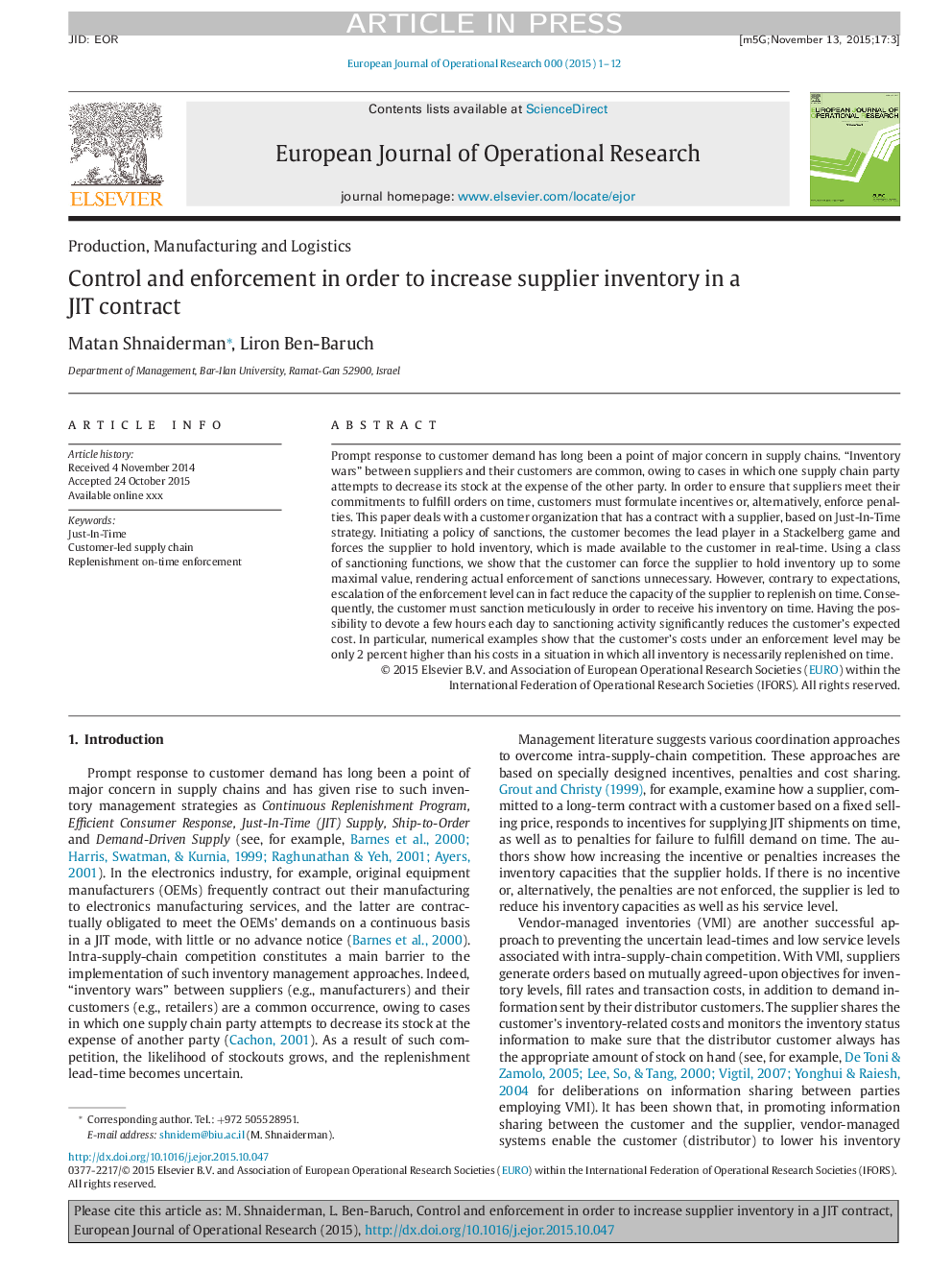| Article ID | Journal | Published Year | Pages | File Type |
|---|---|---|---|---|
| 6895976 | European Journal of Operational Research | 2016 | 12 Pages |
Abstract
Prompt response to customer demand has long been a point of major concern in supply chains. “Inventory wars” between suppliers and their customers are common, owing to cases in which one supply chain party attempts to decrease its stock at the expense of the other party. In order to ensure that suppliers meet their commitments to fulfill orders on time, customers must formulate incentives or, alternatively, enforce penalties. This paper deals with a customer organization that has a contract with a supplier, based on Just-In-Time strategy. Initiating a policy of sanctions, the customer becomes the lead player in a Stackelberg game and forces the supplier to hold inventory, which is made available to the customer in real-time. Using a class of sanctioning functions, we show that the customer can force the supplier to hold inventory up to some maximal value, rendering actual enforcement of sanctions unnecessary. However, contrary to expectations, escalation of the enforcement level can in fact reduce the capacity of the supplier to replenish on time. Consequently, the customer must sanction meticulously in order to receive his inventory on time. Having the possibility to devote a few hours each day to sanctioning activity significantly reduces the customer's expected cost. In particular, numerical examples show that the customer's costs under an enforcement level may be only 2 percent higher than his costs in a situation in which all inventory is necessarily replenished on time.
Keywords
Related Topics
Physical Sciences and Engineering
Computer Science
Computer Science (General)
Authors
Matan Shnaiderman, Liron Ben-Baruch,
